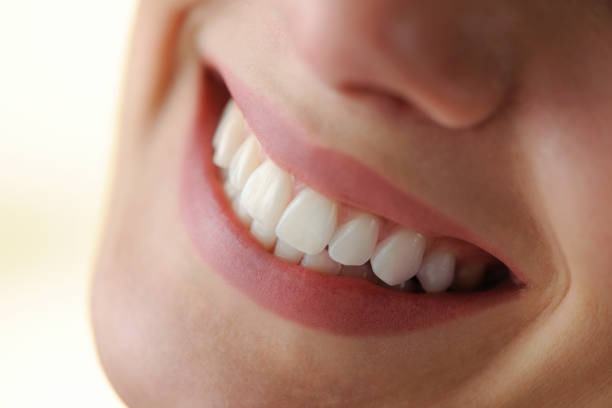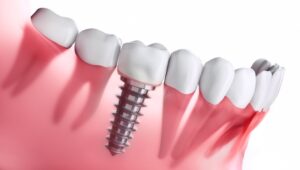We all want to keep our smiles bright, healthy, and pain-free as possible. But anyone who’s ever glanced at a dental bill knows oral care can get expensive, especially when treatments go beyond basic cleaning. This brings up a crucial question for many: Are preventive dental treatments truly worth the cost? Let’s break it down together and discover what makes prevention so powerful, not just for your health but for your wallet.
What Are Preventive Dental Treatments?
Before we start crunching numbers, let’s clarify what “preventive dental treatments” really mean. In simple terms, they’re the steps your dentist takes (and sometimes recommends you take at home) to stop oral health problems before they become serious. These treatments often include:
-
Routine dental cleanings
-
Regular dental exams and X-rays
-
Fluoride treatments
-
Dental sealants
-
Oral hygiene instruction
Think of them as investments in your mouth’s future—an early defense against cavities, gum disease, and even tooth loss.
Why Prevention Pays Off
If you’re weighing whether to invest in preventive care or wait for things to go wrong, consider the “a stitch in time saves nine” approach. Let’s look at some key reasons why paying for prevention now could save you serious cash (and discomfort) later.
1. Small Problems Stay Small
Catching a cavity while it’s tiny means a quick, inexpensive fix. Let it fester, and you’re looking at a bigger filling, a possible crown, or even a root canal. Gum issues work the same way—a little tartar buildup is easy to remove, but ignoring it can lead to gum recession, bone loss, or even loss of the tooth.
2. Dental Insurance and Preventive Visits
Many dental insurance plans cover 100% of preventive care, such as cleanings and checkups. Skipping these benefits is like leaving free money on the table and risking much larger bills down the line.
3. Healthier Smile, Lower Medical Bills
Research consistently links good oral health with overall wellness. Studies show that untreated dental issues can lead to (or worsen) serious health problems such as heart disease and diabetes. By preventing dental infections and gum disease, you could be helping your whole body stay healthier (and avoiding doctors’ bills elsewhere).
For those in need of tooth removal, checking local pricing for teeth extraction in Easton, PA, may also help you better plan your future dental expenses.
Common Types of Preventive Dental Treatments
1. Professional Cleanings
No matter how committed you are to brushing and flossing, tight spaces and stubborn plaque require a professional’s attention. Regular cleanings not only polish your teeth but also remove tartar that you can’t tackle at home.
2. Sealants and Fluoride
Sealants act like a raincoat for your teeth, protecting vulnerable spots from decay. Fluoride, meanwhile, helps strengthen enamel and can reverse early tooth decay. Both can be particularly smart for kids and teens, but adults can benefit too, especially those at high risk for cavities.
3. Oral Cancer Screenings
Another hidden gem in preventive care is oral cancer screening, often part of a routine dental visit. These quick checks can save lives by detecting abnormal cells early.
How Preventive Dentistry Saves You Time
It’s not just about money—your time is valuable, too. Complex dental procedures often mean multiple visits, time off work, repeat trips, and sometimes significant recovery periods. By spending an hour or two in the dentist’s chair each year for preventive treatments, you could save yourself many hours (and lots of hassle) down the road.
Addressing Common Concerns
Do Preventive Treatments Hurt?
Most preventive care is quick, gentle, and virtually painless. Cleanings might cause mild discomfort if you have sensitive gums, but they’re nothing compared to more serious procedures. Plus, dentists and hygienists are pros at making patients comfortable.
What If I Don’t Have Dental Insurance?
If you’re not covered by dental insurance, ask about payment plans, packages, or membership programs at your local dental practice. Some clinics offer membership discounts that reduce out-of-pocket costs for regular preventive visits.
Smart Ways to Save on Preventive Dental Care
There are savvy ways to keep your preventive dental care affordable, even if money is tight:
-
Use Flexible Spending or Health Savings Accounts (FSA/HSA) for tax-advantaged payment
-
Shop around for transparent pricing or discounts at community dental clinics
-
Take advantage of employer-sponsored wellness plans
-
Prioritize what you can do at home—brushing, flossing, and avoiding sugary snacks
The Value of a Healthy Smile
Preventive dental care isn’t just a numbers game. It keeps your smile brighter, boosts your confidence, and helps you avoid that panicked “something’s wrong” feeling. In fact, the peace of mind from regular checkups and clean bills of dental health is hard to put a price on.
For those considering cosmetic improvements or more complex orthodontic treatments, you should learn about their service on Invisalign and how it can work as part of a broader preventive strategy that keeps your bite and alignment in good shape over the years.
What About When Treatment Is Unavoidable?
Let’s face it: Even with great prevention, not everything can be avoided. Injuries, genetics, and the simple passage of time mean that, eventually, some folks will need repairs. That’s where knowing your options becomes crucial. Whether it’s a filling, crown, or something more complex, it pays to research and ask questions before committing.
You may have already explored a few options, such as the cost of Easton dental implant service. This service is often significant but can be a wise investment for lasting function and aesthetics when teeth can’t be saved.
Making Preventive Dental Care Work for Your Family
Getting your whole household on board with preventive care can bring even bigger rewards. Many family dental practices offer bundled checkups for kids and adults at discounted rates, and children who start early learn healthy habits for life.
-
Schedule everyone’s appointments together for convenience
-
Incorporate oral health reminders into your daily routines
-
Set fun challenges for kids—who can brush best or longest?
These small steps add up, protecting everyone from future dental drama.
Final Thoughts
So, is preventive dental treatment worth the cost? When you add up the potential savings—on money, time, and peace of mind—the answer is a sincere “yes.” By investing a little now, you’re setting yourself up for years of better smiles and lower dental bills. That’s a win-win in any language.




